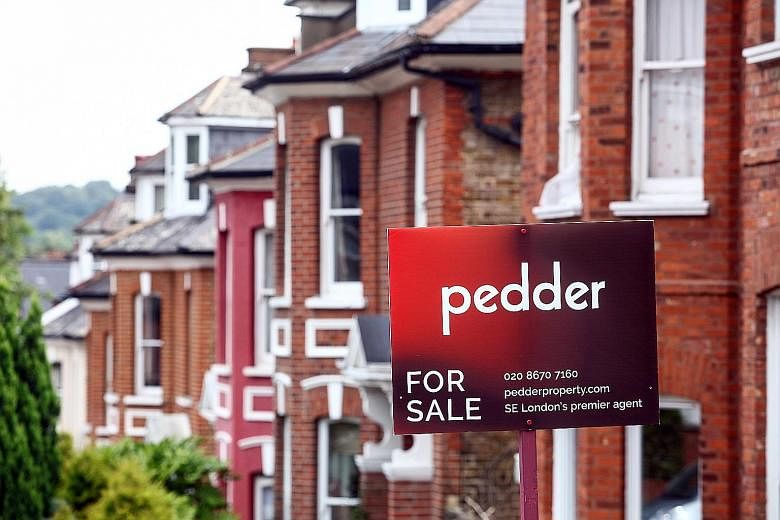BEIJING • China's escalating crackdown on capital outflows is sending shudders through property markets around the world.
In London, Chinese citizens who clamoured to purchase flats at the city's tallest apartment tower three months ago are now struggling to transfer their down payments.
In Silicon Valley, Keller Williams Realty says inquiries from China have slumped since the start of the year. And in Sydney, developers are facing "big problems" as Chinese buyers pull back, according to consultancy firm Basis Point.
"Everything changed'' as it became more difficult to send money offshore, said Coco Tan, a broker associate at Keller Williams in Cupertino, California.
Less than a month after China announced fresh curbs on overseas payments, anecdotal reports from realtors, home owners and developers suggest the restrictions are already weighing on the world's biggest real-estate buying spree.
While no one expects Chinese demand to disappear any time soon, the clampdown is deterring first-time buyers who lack offshore assets and the expertise to skirt tighter capital controls.
"If it's too difficult, I'm out,'' said Mr Zheng, 66, a retired civil servant in Shanghai who declined to give his first name to avoid attracting regulatory scrutiny. He may abandon a 2.4 million yuan (S$498,400) home purchase in western Melbourne, even after shelling out a 300,000 yuan deposit last August. He's due to make another big payment next month.
The change spooking Mr Zheng and his compatriots came in a statement from the State Administration of Foreign Exchange (Safe) on Dec 31, hours before the reset of Chinese citizens' annual foreign currency quotas.
Among other requirements, Safe said all buyers of foreign exchange must now sign a pledge that they won't use their US$50,000 (S$71,400) quotas for offshore property investment.
Violators will be added to a government watch list, denied access to foreign currency for three years and subjected to money-laundering investigations, Safe said.
Wang Ning, vice-president of the international department at Fang Holdings, China's most popular property website, said: "A lot of clients are worried and have started hesitating."
While the regulator has long banned the use of foreign currency for real estate, its call for additional documentation was seen as a signal that the government is serious about cracking down.
China clamped down further on corporate outflows on Thursday, asking firms with outbound investment plans to clarify the source of their funding for purchases and give additional details on their spending.
Even with tightened capital controls, brokers say motivated Chinese investors can usually find ways around them.
BLOOMBERG

